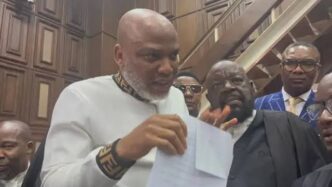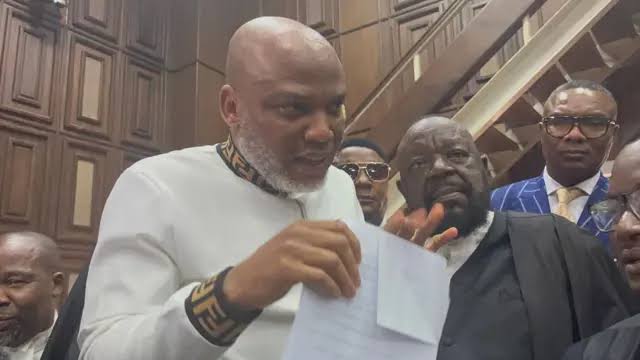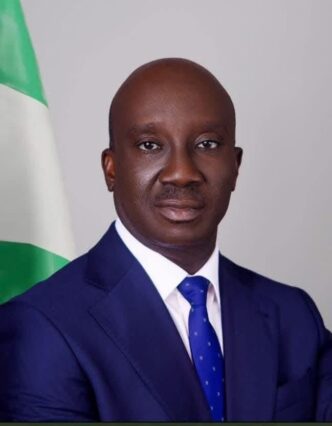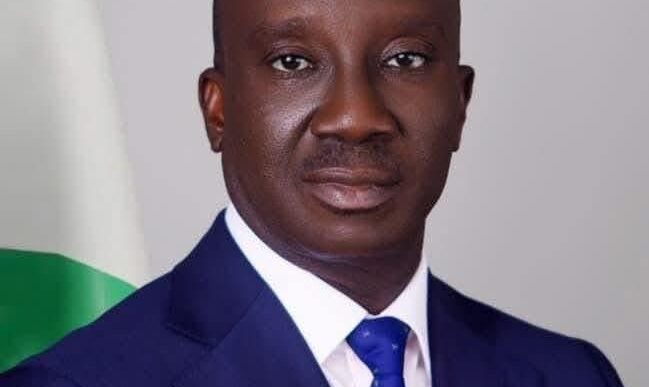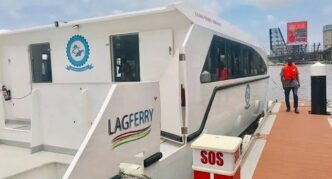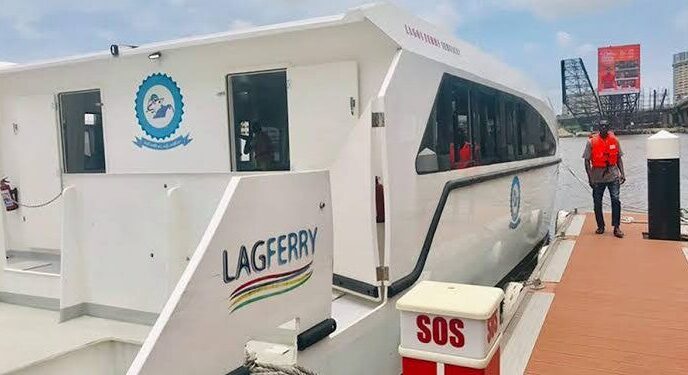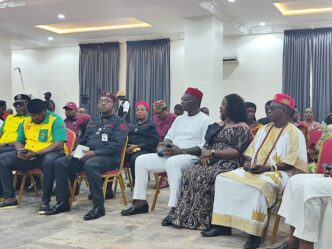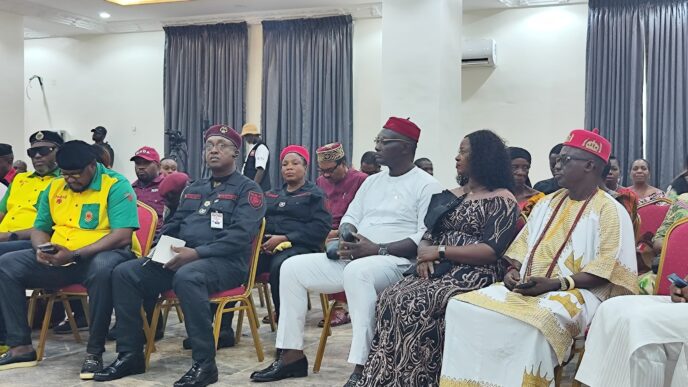Trial of Nnamdi Kanu, the leader of the Indigenous People of Biafra (IPOB), resumed on Tuesday at the Federal High Court in Abuja.
Gatekeepers News reports that Justice James Omotosho presided over the proceedings. During the session, the court approved the Federal Government’s request for witnesses to testify behind screens, citing security concerns.
Kanu’s defense team, led by Kanu Agabi, consists of 22 members; however, the judge limited the size of the team to 13. Four senior advocates have joined the defense, including Audu Nunghe, Joseph Akubo, Emeka Etiaba, and Onyechi Ikpeazu.
The Federal Government’s counsel, Adegboyega Awolowo, explained that the ex parte application for screened testimonies was filed due to the sensitive nature of the case. One of the witnesses, referred to as AAA, is a veteran officer of the Department of State Services (DSS) with 18 years of service. He recounted the arrest of Nnamdi Kanu at the Golden Tulip Hotel in Lagos on October 14, 2015.
AAA indicated that upon arrival at the hotel, the DSS was initially informed by the receptionist that Kanu was not a guest. Subsequently, the DSS obtained authorization to search the hotel room by room. They located Kanu in room 303, accompanied by a woman named Maria Ibezimakor. AAA described an altercation during the arrest, stating that Kanu resisted and physically confronted a DSS officer named Bolaji.
The room where Kanu was found was equipped with various broadcasting tools, leading the DSS to describe it as resembling a broadcasting studio. Kanu was arrested around 11 PM, and the equipment was transported to the DSS office in Lagos, documented with Kanu’s acknowledgment of ownership.
AAA testified that Kanu was interrogated the following day, and the session was recorded. A CD plate containing the interrogation recording was admitted as evidence and played in open court. During the recording, Kanu identified himself and discussed his motivations, stating his commitment to improving the lives of his community.
He acknowledged the establishment of Radio Biafra and mentioned that a colleague, Uche Mefor, managed Radio Biafra London while he was in Nigeria. Kanu indicated that there were no staff members of Radio Biafra operating in Nigeria, as local supporters helped disseminate information. He admitted to not possessing a license to operate a radio station in Nigeria, recognizing that doing so without a license is illegal and asserting that his application would likely be denied.
Kanu stated that he fights for the emancipation of the people from the South East, South South, and parts of Benue and Kogi regions, emphasizing that freedom fighting is a fundamental right globally, including in Nigeria. He believes in the right to freedom of speech and referenced the UN Charter’s endorsement of the right to self-determination, asserting that he has not engaged in violence and has not been associated with any violent acts.

